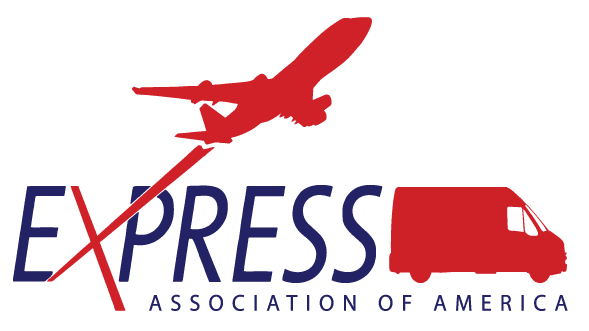March 3, 2025
The Honorable Jamieson Greer
United States Trade Representative
Office of the United States Trade Representative
600 17th Street NW
Washington, DC 20508
Dear Ambassador Greer,
On behalf of the undersigned associations and organizations, we wish to extend our congratulations on your confirmation as the United States Trade Representative. As you take on this critical role, we want to share the business community’s recommendations for advancing U.S. leadership in constructing digital trade rules that support American jobs, exports, innovation, and competitiveness across the economy.
American businesses across all sectors — including manufacturing, services, financial services, energy, retail, healthcare, and agriculture — are the envy of the world because they innovate and use digital services and technology to support sales to customers around the world. According to the Department of Commerce[1], in 2023, U.S. exports of digitally-enabled services accounted for 64% of all U.S. services exports, driving our $278 billion trade surplus in services. The digitally-enabled economy in recent years has contributed almost 9 million jobs across every sector of the economy, and it has helped small and medium-sized businesses compete in ways not possible even a decade ago.
During President Trump’s first term, and with your active support, the United States was a recognized leader in advocating for strong digital trade rules that facilitate the movement of data, prohibit foreign governments from forcing companies to localize data abroad, prevent discrimination against American digital products and services, and safeguard sensitive source code from forced disclosure by foreign governments as a condition for selling into their markets.
You championed these trade rules and succeeded in incorporating them into the U.S.-Japan Digital Trade Agreement, the U.S.-Mexico-Canada Agreement (USMCA), and the United States-Singapore Joint Understanding on Financial Services Data Connectivity. They were also proposed by the first Trump Administration in other settings, including the World Trade Organization (WTO). You recognized that advancing strong U.S. digital trade rules helped ensure American businesses across all industries could compete and succeed overseas and advanced the Administration’s goal of furthering the promise of AI, allowing U.S. firms to fully lead in its global development.
The Biden Administration, without explanation, repudiated this approach by opting out of digital trade negotiations, even as our allies and adversaries have continued to negotiate. Your appointment as USTR is an important opportunity to reassert U.S. leadership in this space to ensure that American workers and businesses can continue to compete around the world.
We urge the new administration to prioritize digital trade rules that advance the following principles:
- Facilitate Cross-Border Data Flows: Ensuring the free flow of data across borders is vital for all sectors of the economy, from agriculture to manufacturing to services and financial services. Seamless data transfer is crucial for real-time communication, operational efficiency in global supply chains, and combatting cybercrime around the world. Restrictions on data flows can hinder innovation, disrupt supply chains, and limit market access for U.S. companies.
- Prohibit Data Localization Mandates: Mandates that require data to be stored locally or prevent data from being processed overseas, as a condition for doing business in a country, create unnecessary barriers to exports and increase costs for businesses, particularly startups and small and medium-sized enterprises. These mandates can also undermine data security, cybersecurity, and privacy. Local storage requirements can lead to fragmented data management systems, increasing the risk of data breaches and compliance challenges.
- Prevent Discrimination Against U.S. Digital Products and Services: The United States must prevent foreign governments from implementing measures that serve as market access barriers and discriminate against American digital products and services. Such discrimination not only harms U.S. companies but also limits consumer choice and stifles competition. Discriminatory practices can include unfair licensing requirements or biased regulatory standards and quotas or procurement mandates that favor local competitors, including on issues like cloud, AI, content, and competition.
- Prevent Revenue Extraction Targeting U.S. Exports: Foreign governments are increasingly viewing competitive U.S. digital products and services as an attractive target for revenue raising measures, to the detriment of U.S. exports. These measures include digital services taxes and similar discriminatory or extraterritorial tax measures, as well as attempts to impose customs formalities and duties on electronic transmissions. The United States should firmly oppose such measures, including by pushing to make permanent the WTO moratorium on customs duties on electronic transmissions.
- Safeguard Sensitive Source Code: Protecting source code and algorithms from forced disclosure, as a condition for doing business in a country, is essential to prevent cyber theft, support AI innovation, and maintain the integrity of U.S. technology. Forced disclosure mandates can expose U.S. enterprises to malicious cyber activity and intellectual property theft. Ensuring the confidentiality of source code helps protect proprietary technologies and maintain competitive advantages for the U.S.
- Promote High-Standard Digital Trade Rules: The U.S. should continue to advocate for and actively enforce high-standard digital trade rules in international agreements that support U.S. leadership in advanced technologies, and reflect the values of openness, freedom, and non-discrimination. High-standard rules help create a predictable and competitive trading environment, yielding broader market opportunities, job creation, innovation, and economic growth for the U.S. This should include reasserting a strong U.S. voice in E-Commerce-related discussions in the WTO.
- Support Startups and Small and Medium-Sized Enterprises (SMEs): Digital trade policies should support the ability of startups and SMEs to compete globally. Startups and SMEs often lack the resources to navigate complex regulatory environments and bear the costs of data localization and other restrictive measures. They benefit enormously from simplified and streamlined digital trade rules that allow them to access new markets and scale their operations more effectively.
- Foster Innovation, Economic Growth, and Enhance Competitiveness: Strong digital trade rules enhance the global competitiveness of U.S. businesses by ensuring they can operate on a level playing field. By promoting policies that facilitate digitally-enabled trade, the United States will continue to lead in the development of new technologies and business models. Encouraging digitally-enabled trade spurs U.S. technological advancements in areas such as artificial intelligence, biotechnology, energy production, and other sectors across the economy.
- Consider New Digital rules to Address Old Problems: The proliferation of inconsistent and localized technical requirements in multiple jurisdictions has long hampered the ability of U.S. suppliers to offer digital services on a global scale. The United States should lead in developing rules that incentivize the use of international standards, including for AI.
The America First Trade policy prioritizes identifying countries with which “the United States can negotiate agreements on a bilateral or sector-specific basis to obtain export market access for American workers, farmers, ranchers, service providers, and other businesses.” Under your leadership, we have an invaluable opportunity to restore U.S. leadership in support of digitally-enabled trade for American goods, services, and agriculture. Adhering to these principles will not only benefit American workers and businesses, but also advance broader U.S. economic and strategic interests.
Sincerely,
ACT | The App Association
American Council of Life Insurers
American Property Casualty Insurance Association (APCIA)
AdvaMed
Business Roundtable
Business Software Alliance (BSA)
Chamber of Progress
Coalition of Service Industries (CSI)
Computer & Communications Industry Association (CCIA)
Consumer Technology Association (CTA)
E-Merchants Trade Council
Engine
Entertainment Software Association
Express Association of America (EAA)
Global Data Alliance
Global Innovation Forum
Independent Film & Television Alliance
Information Technology Industry Council (ITI)
Motion Picture Association
National Association of Manufacturers
National Foreign Trade Council (NFTC)
National Retail Federation
NetChoice
Payments Leadership Council
Pharmaceutical Research and Manufacturers of America (PhRMA)
Reinsurance Association of America
Retail Industry Leaders Association
Securities Industry & Financial Markets Association (SIFMA)
Securities Industry and Financial Markets Association Asset Management Group
(SIFMA AMG)
Small Business & Entrepreneurship Council
Software & Information Industry Association (SIIA)
TechNet
Technology Trade Regulation Alliance (TTRA)
Telecommunications Industry Association (TIA)
U.S. Chamber of Commerce
US Council for International Business (USCIB)
[1] Fact Sheet: International Trade Administration Efforts to Advance U.S. Competitiveness and Trade in the Digital Economy | U.S. Department of Commerce

